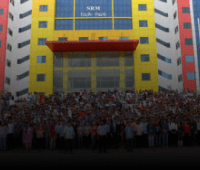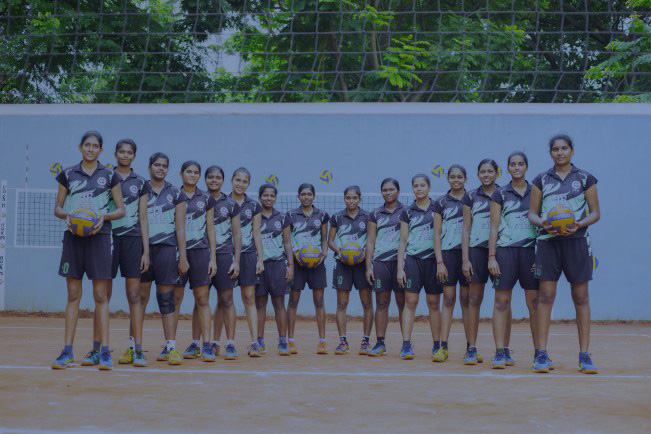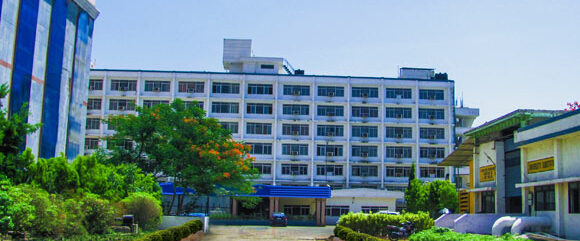DISCIPLINARY PROCEEDINGS
- Every employee shall at all times maintain absolute integrity; show devotion to duty; and do nothing which is unbecoming of an employee of the University.
- An employee who commits a breach of the bye-laws/ regulations of the University or who are negligent, inefficient or indolent or who knowingly does anything detrimental to the interests of the University or in conflict with the instructions, commits a breach of discipline or is guilty of any act of misconduct shall be liable to be punished.
- The Tamil Nadu Civil Services (Discipline & Appeal) Rules shall apply, mutatis mutandis, to employees of the University for guidance.
- Powers of the disciplinary authority shall be exercised by the appointing authority and the powers of the Appellate Authority shall be exercised by the next higher authority. For this purpose, the authorities in order of precedence shall be the BoM, the Vice-Chancellor and the Registrar.
- In the case of the teachers and staff above the cadre of Assistant Registrar of the University, the Vice-Chancellor shall be the disciplinary authority and the BoM shall be the appellate authority.
- In the case of technical and other non-teaching staff of the University, the Registrar shall be the disciplinary authority and the Vice-Chancellor shall be the appellate authority.
- The Tamil Nadu Civil Services (Discipline & Appeal) Rules as and when amended shall apply mutatis mutandis to the employees of the University.
- If any employee communicates anything connected to the activities of the University to the higher authorities directly, they will be subjected to disciplinary action.
1. Misconduct
An employee who commits misconduct shall be liable to be dealt with in accordance with the provisions of these rules.
For the purpose of these rules without prejudice to the general meaning of the term, the following acts and omissions shall constitute misconduct and the term ‘habitual’ shall mean as defined herein above.
1.1. Willful insubordination or instigation thereof, disobedience or instigation thereof whether alone or along with another, of any lawful and reasonable order of a superior.
1.2. Participation in an illegal or unjustified strike or abetting, inciting, instigating or acting in furtherance thereof, whether alone or in combination with others.
1.3. Willful slowing down in performance of work or abetment or instigation thereof.
1.4. Theft, fraud or dishonesty in connection with SRMIST’s business/ property or theft of another employee’s property or theft of any kind.
1.5. Taking or giving bribes or any other illegal gratifications whatsoever.
1.6. Habitual absence from work or absence without permission for a period exceeding three consecutive working days.
1.7. Frequent or habitual late attendance.
1.8. Habitual breach or gross and deliberate violation of any standing orders, or any law applicable to the Institute or any rules made there under.
1.9. Collecting contributions for any purpose whatsoever at any time in the Establishment without the permission of the Registrar.
1.10. Engaging in trade within the establishment without the written permission of the Registrar.
1.11. Drunkenness or riotous, disorderly, indecent or improper behavior, use of abusive language, threatening, intimidating, coercing other employees or interfering with the work of other employees, assault or threat of assault either provoked or otherwise within the Institute or the commission of any act subversive of good and proper behavior within the Institute.
1.12. Commission of any act or conduct subversive of discipline of SRMIST whether within the premises or outside in connection with SRMIST’s work.
1.13. Habitual negligence or neglect of work.
1.14. Habitual breach of any rules or instructions for the maintenance and operation of any department or the maintenance of the cleanliness of any portion of the Establishment.
1.15. Damages, whether willful or due to irresponsible action or damage due to negligence or carelessness to work in process or to any property of SRMIST or within the SRMIST or any instigation or abetment thereof.
1.16. Organizing, holding, attending or taking part in any meeting within the Establishment without the prior sanction of the Registrar.
1.17. Disclosing to any unauthorized person any information in regard to the processes or any interests of the Institute which may come into the possession of an Employee in the course of his employment.
1.18. Gambling within SRMIST.
1.19. Smoking within SRMIST.
1.20. Failure to observe duly notified safety instructions or normal safety precautions or interference with any safety device or equipment installed within SRMIST.
1.21. Engaging in other employment (full time/ part time) while in service of SRMIST without the prior written permission of the Registrar.
1.22. Sleeping during working hours.
1.23. Loitering, idling or wasting time during working hours or being within the Establishment after authorized hours of work without permission.
1.24. Marking attendance of any Employee other than his own (proxy)
1.25. Marking attendance and or giving additional marks for any student for monetary benefits (in the form of cash, gifts,etc.,)
1.26. Declared and being carried in the registers of the Police as a bad character or conviction by any court of law for any criminal offence involving moral turpitude.
1.27. Doing private or personal work, within SRMIST using tools or materials belonging to the Institute without the prior written permission of the Registrar.
1.28. Distribution or exhibiting within SRMIST- handbills, pamphlets, posters or causing to be displayed by means of signs or writing or other visible representations of any matter without the prior written sanction of the Registrar.
1.29. Making false, vicious and malicious statements in public or otherwise against the Institute or any member or employee of SRMIST.
1.30. Willful falsification, defacement or destruction of any records of the Institute.
1.31. Knowingly making false or misleading statements or misrepresentation at the time of employment.
1.32. Unauthorized possession of any weapon in SRMIST.
1.33. Failure to report damage or defects noticed in machinery, equipment and processes.
1.34. Refusal to appear for medical examination when required to do so by the Registrar in the event of suffering from infectious diseases.
1.35. Applying for leave or seeking ratification of absence for reasons found to be false.
1.36. Running of chit funds or other schemes for raising loans within the establishment.
1.37. Squatting or remaining anywhere within the premises of the establishment with a view to intimidate or coerce or threaten the Management of the Institute or any other fellow worker in connection to his/her employment.
1.38. Shouting any slogan within the establishment whether alone or in combination with others.
1.39. Spitting in the establishment.
1.40. Refusal to leave the work premises at the conclusion of duty hours.
1.41. Refusal to wear or show the identity card.
1.42. Willful or deliberate wasting of water and electricity in the premises.
1.43. Threatening any Employee alone or in combination with others or through any outside agency in connection with the employment in SRMIST.
1.44. Willful or deliberate misuse of any amenity provided by the Institute.
1.45. Gaining admission to the premises by impersonation or by production of false identity card or fake certificates.
1.46. Conduct on the part of employee likely to endanger the life or safety of other employee.
1.47. Habitual overstaying sanctioned leave without sufficient grounds and satisfactory explanation or leaving the premises or work spot when leave is refused.
1.48. Refusal to receive charge sheet, order or other lawful or proper communications served in accordance with these rules.
1.49. Making malicious statements against the Institute or its Officers through verbal, printed materials, electronic means or online internet / intranet facilities.
1.50. Lending or collecting money or canvassing loans etc.
1.51. Sexual harassment.
1.52. Contesting any election for local body or others and engaging in political activities.
1.53. Consumption or possession of alcohol/ narcotics.
1.54. Bringing disrepute to SRMIST either directly or indirectly.
2. Procedure to be Followed in Conducting Enquiries
Introduction
None of the provisions contained herein-below shall apply to proceedings before the Internal Complaints Committee constituted under the provisions of the Sexual Harassment in Workplace (Prevention, Prohibition & Redressal) Act, 2013, except to the extent specifically provided for.
Misconduct
- Any act of deviation or transgression from an established Code of Conduct as contained in the HR Manual is a ‘Misconduct’. An employee may be punished for misconducts as more fully contained in this manual.
- A misconduct committed within the premises or the precincts of the Institute shall be acted upon. Any misconduct committed outside the premises but has a direct nexus to the employment, shall also be proceeded with.
Charge Memo
- Disciplinary action shall be initiated with issuance of Charge Memorandum which shall broadly contain the misconduct intended to be proceeded.
- Where the employee is not conversant in English, it shall be provided for in vernacular. The Charge Memorandum may be issued by the Registrar of the Institute; the Dean of respective schools or such other officer as may be duly authorized.
- When charges are not admitted on receipt of the Charge Memo, when the reply of the delinquent is found unsatisfactory an enquiry should be conducted and such a decision shall be informed to the employee in writing. Such notice of enquiry shall reveal the name of the Enquiry Officer / Committee, date and the venue of enquiry, which normally is within the premises of the Institute.
- Right of presentation: Except under exceptional circumstances to be recorded in writing, the employee does not have the right to be represented by a Legal counsel or a co-employee or an outsider in the enquiry.
Enquiry Officer/Committee
- The disciplinary Authority shall appoint an Enquiry Officer any person who is superior in rank of the delinquent employee shall be appointed as an Enquiry Officer.
- Legal principles namely ‘No man can be a judge in his own cause’; ‘No one should be condemned unheard’; ‘One who hears must decide’, shall be followed in conduct of enquiries and imposing of punishments
- The role of Enquiry Officer is not that of a Judge like in a court of law. He has to merely state whether the charges against the employee are proved or not, as in a fact-finding mission
5. Enquiry Officer/Committee
Any employee authorized by the Disciplinary authority may be the Presenting Officer. He can produce witnesses and documents on behalf of the Institute, during the enquiry. Where the Presenting Officer is qualified in Law, then the employee proceeded against shall also be afforded with opportunity to engage the assistance of a Lawyer.
Evidence
- It involves chief examination of the Management Witnesses; the cross-examination of Management Witnesses, by the employee proceeded against and the examination of the Witnesses by the employee proceeded against, including himself/ herself in the cross-examination by the Presenting Officer.
- The Presenting Officer shall furnish to the delinquent, a list of documents and witnesses he/she wishes to rely on before commencement of the Enquiry. Additional lists may be furnished as and when necessary.
- Therefore, the Presenting Officer shall examine his/her witnesses at the first instance. The employee proceeded against shall be provided with the opportunity to cross-examine the witness.
- Strict and sophisticated rules of evidence under the Indian Evidence Act shall not apply to these proceedings. All materials, which are logically probative for a prudent mind, are permissible. But basic principles of Evidence Law shall not be flouted. The witnesses shall be examined by the Presenting Officer in the presence of the employee proceeded against.
- The copies of statements recorded during the enquiry should be furnished to the delinquent on the enquiry day itself.
- Any conclusion reached by the Enquiry Officer must be based as an acceptable material placed before him/her.
Ex-parte Proceedings
- When Charge Memo, Notice of Enquiries etc. are refused to be received by the Delinquent, the disciplinary authority shall proceed with the disciplinary action ex parte.
- Normally, when the delinquent refuses to receive notice/s in person, they are to be sent to his/her last known address by the registered post/speed post with the acknowledgment card. Postal endorsements like ‘refused to receive’, ‘intimation given – not collected’, ‘left without intimation’, are to be considered as sufficient proof of service notice, i.e. the delinquent deliberately refuses, knowing the contents. But return of postal cover with endorsements like ‘left without notice’, will not amount to sufficient service. The notice shall also be pasted on a conspicuous place. It also necessary to publish the notice in a daily newspaper having sufficient circulation in the area where the delinquent last resided. It is suggested that such advertisement be given in vernacular, as well. In spite of such advertisement, if no intimation is received from the delinquent or he/she does not participate in the enquiry, it can be conducted ex-parte.
- There are circumstances where the delinquent, in spite of receiving the notices will choose to remain in cognito. In such cases, sufficient opportunities may be given by adjourning the enquiry, before the enquiry is conducted ex-parte
Enquiry Report
- The Enquiry Officer has to submit his/her report and findings in respect of the charges and the evidence presented before him/her. It is not for them to suggest punishments.
- The disciplinary authority may independently come to a different conclusion even though the charges are not proved by the enquiry officer but supported by necessary evidence available during the enquiry that has been over looked by the Enquiry Officer. The difference in conclusion should be based on sound reasoning and the same should be mentioned in the show cause notice.
Multiple Proceedings
When an employee is habitual in committing misconducts, action against him/her for more than one misconduct for different instances, the proceedings may be conducted simultaneously.
Show cause Notice
- Once the Report & Findings are received, the Disciplinary Authority shall issue a show cause notice to the delinquent. A copy of the Enquiry Report & Findings of the Enquiry Officer, should be furnished to the delinquent. Non-furnishing of the Enquiry Report amounts to violation of principles of natural justice and the final order is liable to be set aside.
- Even if the delinquent does not ask for a copy of the report, it shall be furnished.
Domestic Enquiry & Criminal Trial
- Where misconducts are offences under penal laws, criminal action may also be initiated.
- Disciplinary action and criminal action should not be held simultaneously.
- Where the disciplinary authority finds it fit to defer the domestic enquiry, pending criminal proceedings, the substantive difference in both these proceedings is the degree of proof required. Acquittal by criminal Court shall not be a bar on the departmental proceedings.
Suspension
- Where disciplinary proceedings against an Employee is contemplated or pending or where criminal proceedings against him/her is in progress and the Institute is satisfied that it is necessary or desirable to place the Employee on public interest under suspension, the Registrar or such other Officer, may by order in writing suspend him/her with effect from such date as may be specified in the order. A statement setting-out in detail the reason for such suspension shall be supplied to the employee while placing him/her under suspension. An employee, who is placed under suspension under this clause shall during the period of such suspension be paid as a subsistence allowance as per provisions of Tamil Nadu Payment of Subsistence Allowance Act, 1981.
- If, on the conclusion of the enquiry, or as the case may be, of the criminal proceedings, the employee has been found guilty of the charges framed against him/her and it is considered, after giving the employee concerned a reasonable opportunity of making representation on the penalty proposed that an order of punishment, the Employer shall pass an order accordingly.
- Provided that when an order of dismissal or termination is passed under this clause, the employee shall be deemed to have been on loss of pay during the period of suspension and shall not be entitled to any remuneration for such period and that subsistence allowance already paid to him/her shall not be recovered.
- The appointing authority Viz. Registrar shall be the competent person to initiate any disciplinary action.
- If on the conclusion of the enquiry or as the case may be of criminal proceedings, the employee has been found to be not guilty of any of the charges framed against him, he/she shall be deemed to have been on duty during the period of suspension and shall be entitled to the same wages/salary as he/she would have received if he had not been paid for such period.
- In awarding the punishment under these Rules, the Registrar shall take into account the gravity of the misconduct, and any other extenuating or aggravating circumstances that may exist.
- A copy of the order passed by the Registrar on the disciplinary action initiated shall be communicated to the employee concerned by RPAD.
- The Registrar shall be the punishing authority to impose minor or major punishment against any of the employee based on enquiry report. He is empowered to vary the findings of the enquiry officer based on the evidence / records.
- The Vice Chancellor shall be the appellate authority in respect of minor or major punishment imposed by the Registrar.
- The Registrar can place any of the employees under suspension if deemed fit.
- Whenever it is proposed to impose, against an employee, any of the penalties specified, he/she may desire to make representations, and such representations if any, shall be taken into consideration before imposing penalty. A show cause notice may be given before any major penalty is imposed.
13. Punishments
An employee guilty of misconduct may be imposed the following punishments:
Minor Punishments:
i) Censure
ii) Fine
iii) Stoppage of increment with cumulative or without cumulative effect
Major Punishments:
iv) Withholding of promotion
v) Demotion to a lower post or pay scale or lower stage in the pay scale
vi) Dismissal from service
vii) Removal from service














